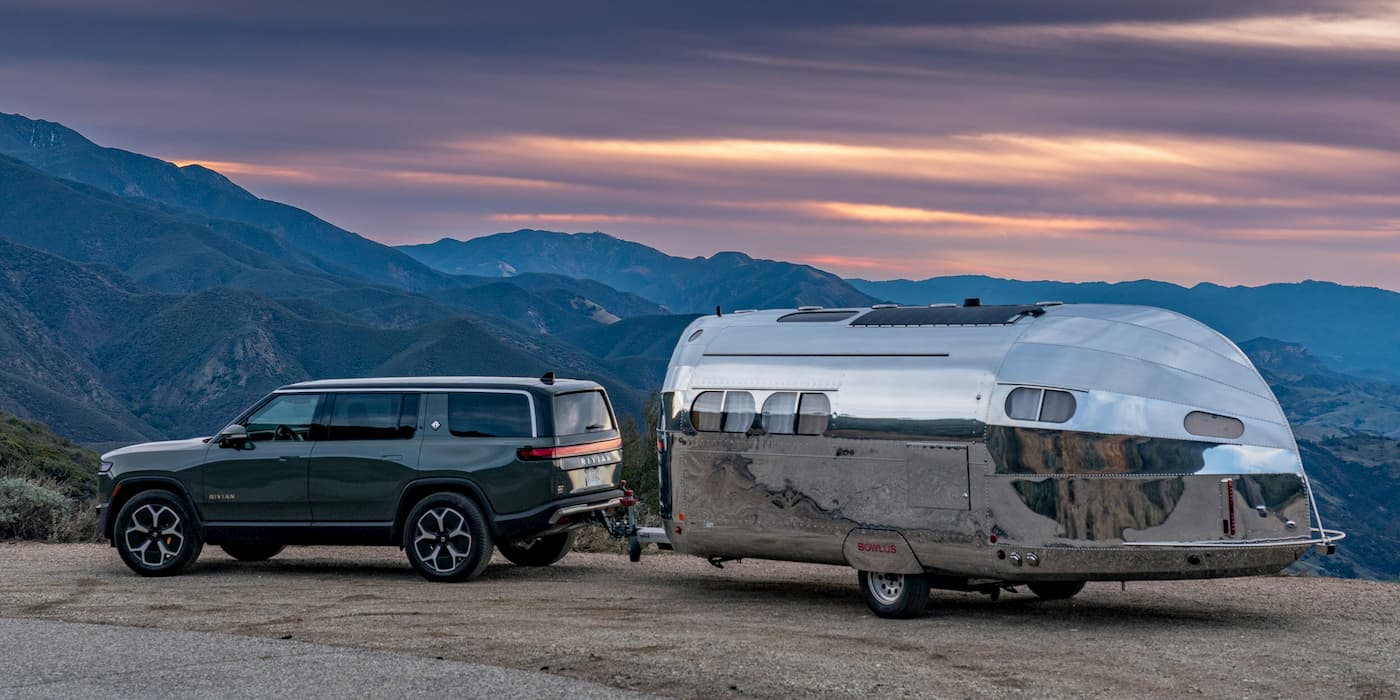
Imagine how peaceful camping would be without the loud gas-powered engines running. Electric vehicles are upgrading the camping experience as we know it. Not only are EVs silent, but they also offer unique advantages over gas-powered cars for camping.
EVs are going more off-grid
If you haven’t noticed already, more electric vehicles are going “off-grid” to explore the outdoors, go camping, etc.
In fact, campers are more likely to own an electric vehicle. According to a survey by Kampgrounds of America (via CNN), about 4% of regular campers own an EV, compared to just 1% of Americans.
EV startups like Rivian (RIVN), with its “Electric Adventure Vehicles,” are designing vehicles built for on- and off-road performance. Rivian’s vehicles are made with one mission in mind: “to protect our planet and the cultures that inhabit it for generations to come.”
Although Rivian EVs are “made for the plant,” they are also some of the most hardcore vehicles you will come across.
Rivian’s R1T electric truck offers up to 410 miles of range, an extendable truck bed (up to 83.9″), a gear tunnel and frunk for extra storage, and even an included “Rivian Torch” flashlight in the driver-side door.
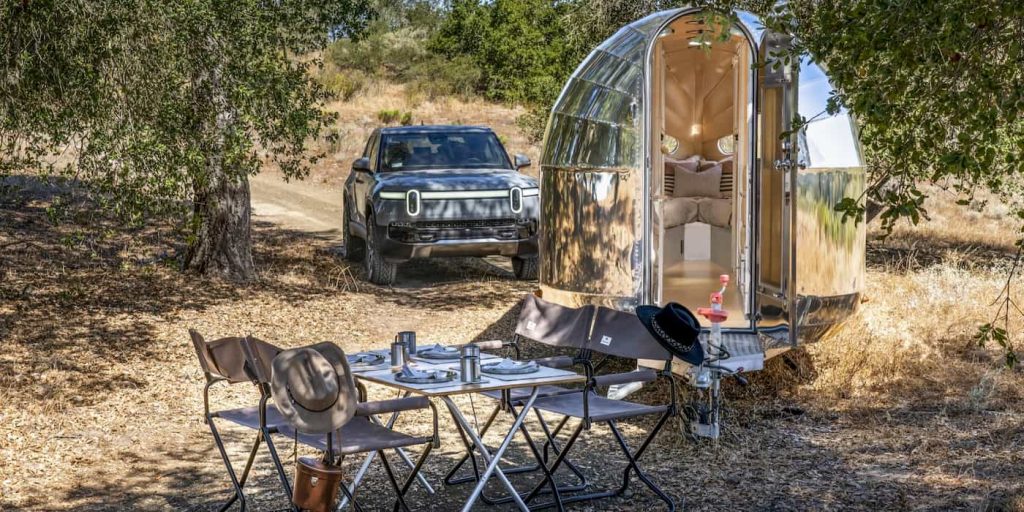
The R1T can also plow through +3 feet of water, rock crawl a 100% grade, and tow up to 11,000 lbs.
Rivian’s R1S electric SUV offers just as much capability with up to 400 miles range, 14.9″ of ground clearance, and room for seven. It includes up to 104 cu ft storage space an 7,700 lbs towing.
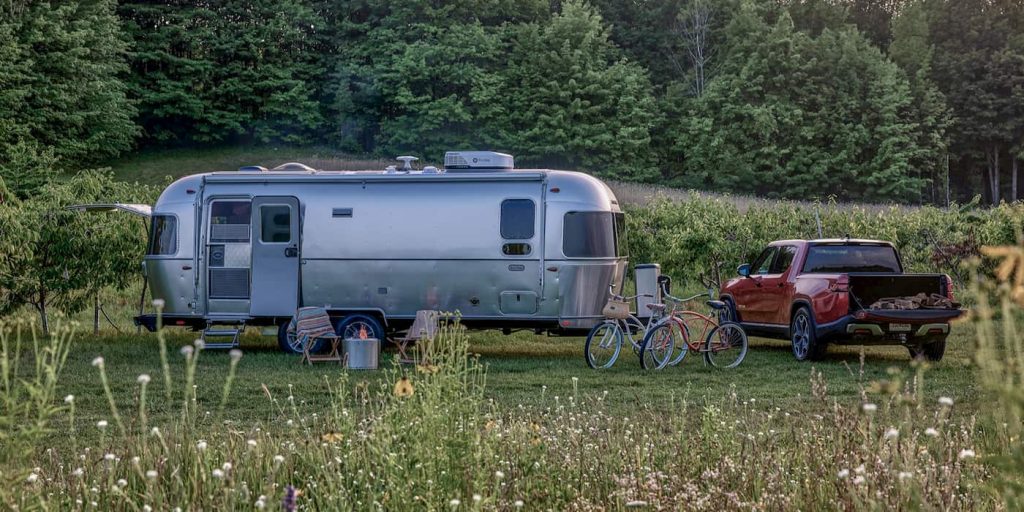
EVs are upgrading camping as we know it
Rivian is not the only company designing EVs for camping and exploring. Ford, Hyundai, Tesla, Volkswagen, and others are building electric vehicles and features to upgrade the experience.
Electric vehicles already offer distinct advantages over ICE cars, like when towing. Matt Lin, who takes his Ford F-150 Lightning and a camping trailer out every few weeks, explained how the instant torque helps when towing.
“I’m not constantly sitting there watching transmission temps climb, I’m not watching motor temps climb on hills,” Linn said. He lives in “Hill County,” Texas.
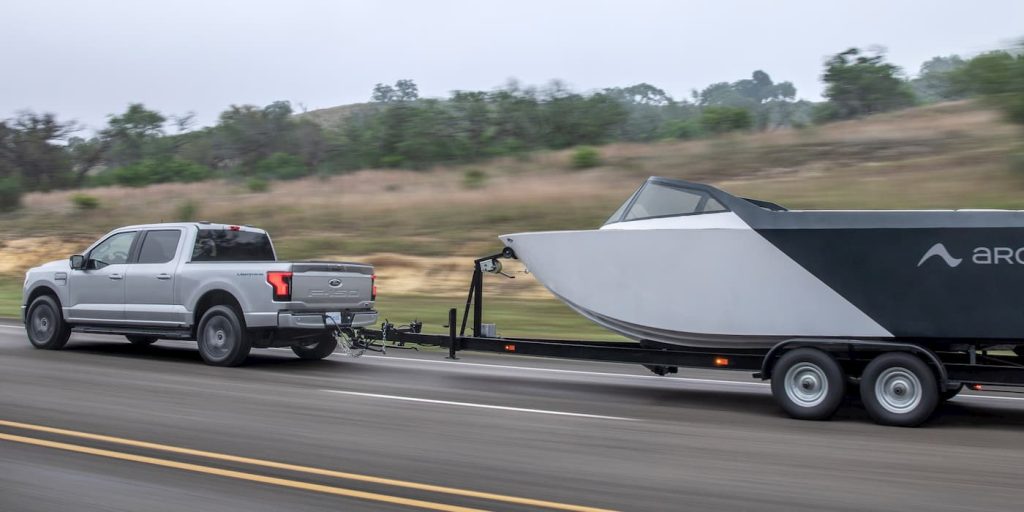
Linn added he uses the “frunk almost as an outdoor kitchen because it takes a lot of electrical strain off of the camper.” He uses it to run his coffee maker, ice maker, etc.
Meanwhile, automakers are not the only ones working to improve the camping experience with EVs. Trailer companies are releasing unique new products and features to make EV camping even easier.
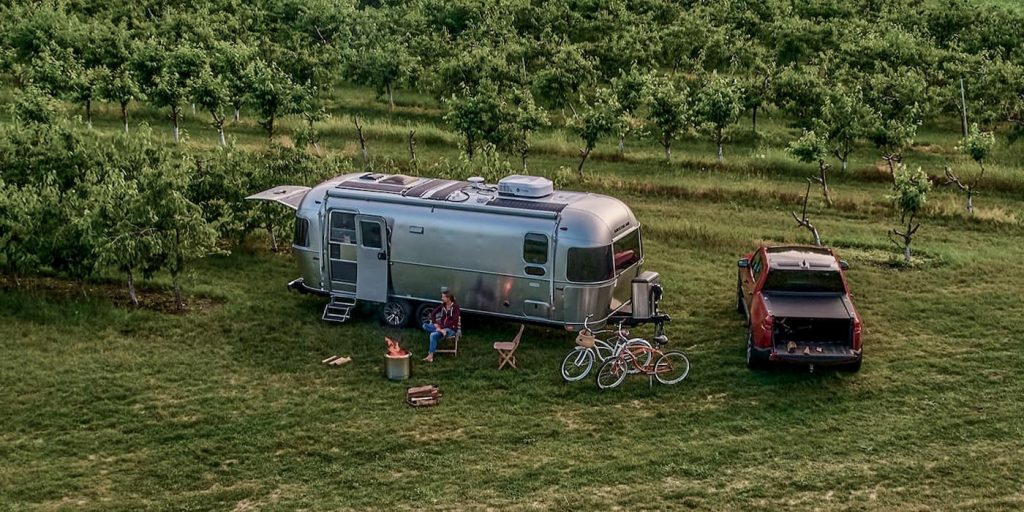
Mike Kowal, who pulls an airstream RV with his Rivian R1S, said the SUV learns how the trailer impacts range and adjusts estimates. He can tow about 200 miles with the trailer.
Travel trailer and RV companies joiAirstream, known
Know for its iconic “Silver Bullet” design, Airstream unveiled the Trade Wind in Sept. It’s the company’s most independent travel trailer so far, featuring its biggest battery bank and solar system.
Thor Industries, which owns Airstream, is focusing on aerodynamics to improve efficiency. Thor’s head of product development, McKay Featherstone, said, “As we specifically target electric vehicles, it just becomes doubly important.”
Airstream isn’t the only one. Rivals like Bowlus are going all-in on electric and solar tech for off-grid camping.
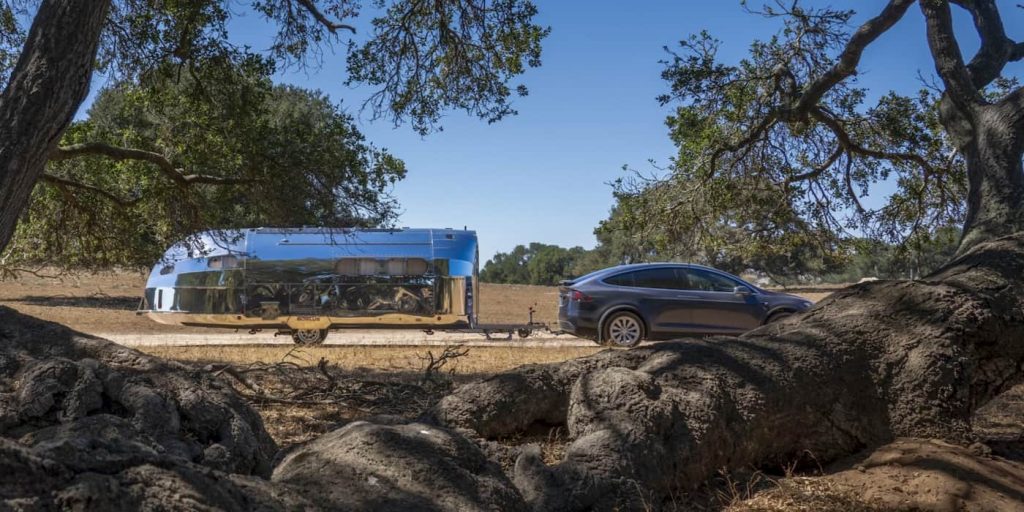
Bowlus, which launched the “world’s first all-electric RV,” revealed its new Rivet luxury travel trailer last month. As its most rugged RV yet, the Rivet features a “yacht-quality” battery and solar system for “indefinite time off-grid.”
The Rivet’s +25-ft floor plan includes a separate bedroom, a luxury bathroom with a hotel-style shower, a spacious living room, and a kitchen. Also included is a fridge/freezer, air conditioning, heat, two-burner induction cooktop, microwave, and more.





“We’ve had customers cross coasts, all the way up to Canada, all the way across Canada and back down, all with an electric vehicle,” Bowlus CEO Geneva Long explained.
One of the biggest obstacles right now is charging. Many campsites across the country have older infrastructure and need an upgrade.
KOA has dedicated EV chargers at about 5% of its campsites, which could reach around 50% in the next 5 to 10 years.
FTC: We use income earning auto affiliate links. More.





Comments